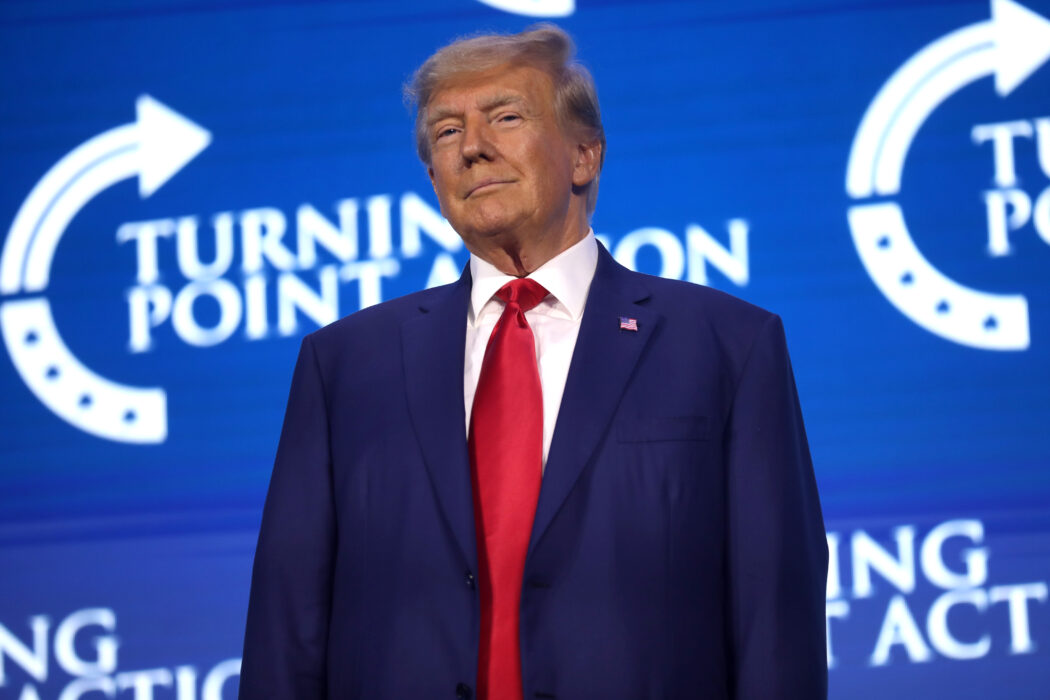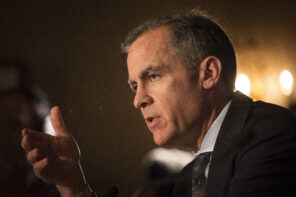“On June 14, 1946, God looked down on his planned paradise and said, ‘I need a caretaker.’ So God gave us Trump.”
This phrase is the opening monologue of “God Made Trump,” a video the former president himself has reshared on social media and blared over speakers during his entrances at Iowa campaign rallies. Elevating Trump to that of a quasi-Jesus figure, this rhetoric resonates most deeply with white evangelical Christians, 80% of whom voted for Trump in 2016 and 75% in 2020. For evangelicals, the line between religious and political support has become increasingly blurred—so much so that it arguably no longer exists. Religious loyalty and political identity are inextricably intertwined, with each reinforcing the other.
Proper contextualization of this current-day phenomenon must consider the historical prevalence of the belief that ‘to be American is to be Christian, and to be Christian is to be American.’ Christian nationalism has been central to the doctrines of many past presidents; Eisenhower added the phrase “under God” to the pledge of allegiance, Reagan advanced a ‘chosen nation’ rhetoric, and Bush framed the American response to the 9/11 attacks within a religious context. These deep roots of Christian nationalism, based (idealistically) upon a traditional sense of morality and international duty, have once again been unearthed and replanted by the MAGA movement. Today’s GOP is marked by a devout cult-like reverence for its leader, and through the invocation of faith-based symbols and language, Donald Trump has emerged as a totemic figurehead for the infusion of religious zeal into politics.
Certain religious symbols have played an integral role in the ideological construction of Trump as an ‘American prophet.’ Blood rhetoric, for example, specifically in reference to the ‘blood of the nation’ carries heavy religious importance. Biblically, Christ’s blood, consumed in the form of wine, is seen to carry redemptive qualities, and the notion of blood spilled on the cross is central to Christian theology. Blood is also associated with purity, and this image has been co-opted by white MAGA evangelicals to justify their beliefs. Imagery of blood and purity seep into the discourse of racialized issues such as border control; 54% of white Evangelicals believe that “immigrants are poisoning the blood of the country.” Evangelicals are the only religious group to agree in majority with the great replacement theory, which posits that immigrants seek to invade and replace the ethnic and cultural background of the United States. By positioning himself against these perceived threats, Trump becomes a hailed protector of white American Christian purity.
A second prominent concept in this relationship is martyrdom. In reference to his criminal prosecution, Trump declared that he was “taking the bullets, taking the arrows…being indicted for you.” For evangelicals, ultimate sacrifice is key to raising a figure to divine status, and Trump’s rhetoric powerfully engages with this religious symbolism. As Jesus sacrificed himself for humanity, Trump frames himself as a martyr for his cause, embodying Christ-like qualities in the eyes of his followers.
This sentiment reached a crescendo on July 13th, 2024, when the former president narrowly dodged a bullet fired at him during a rally in Butler, Pennsylvania. This assassination attempt elevated Trump to an almost mythical stature and brought forth a hailstorm of religious sentiment. At the Republican National Convention, South Carolina Senator Tim Scott proclaimed, “Our God still saves… the devil came to Pennsylvania holding a rifle, but an American lion got back on his feet,” while Texas Governor Greg Abbott stated that “Trump is truly blessed by the hand of God.”
Regarding the upcoming 2024 presidential race, evangelicals have sectarianized political competition, presenting the election as a religious battle with two outcomes: victory and salvation, or apocalypse and ruin. Almost half of evangelicals and two-thirds of Republicans agree that “the final battle between good and evil is upon us, and Christians should stand firm with the full armor of God.” Trump has propagated this representation of the 2024 election outcome as a bipolar struggle, alluding to religious apocalypticism through his presentation of a ‘final battle’.
As election night approaches, a pressing question arises: to what extent does this ideological framing allow for any outcome other than a Trump victory—or a fight? For Evangelicals, political support for Trump is inseparable from religious belief, creating an unbreakable loyalty, and transforming the election into a spiritual struggle where compromise is unthinkable. Like faith itself, this support isn’t grounded in pragmatism or logic, but in conviction. If we have learned anything from 2021’s January 6th insurrection, it is that white evangelical Trump supporters will follow their “Shepherd to mankind,” no matter the cost. This year, the Capitol building will be well defended. But make no mistake—as long as religious loyalty and political identity continue to coalesce, American democracy will never be completely safe.








